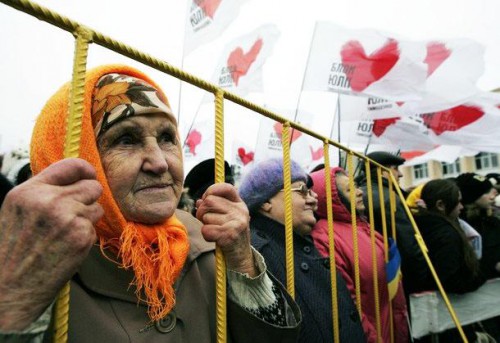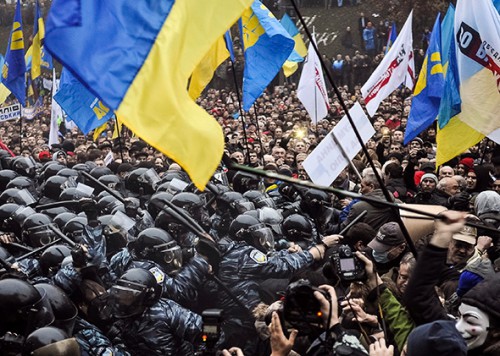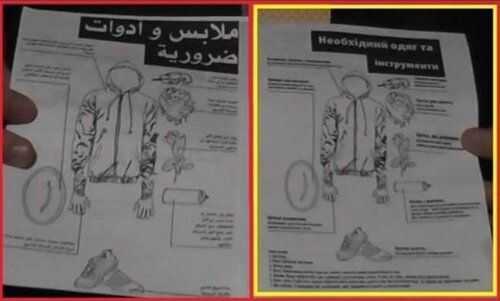Des communautés européennes en voie de disparition...
par Robert Steuckers
Recension: Karl-Markus GAUSS, Die sterbenden Europäer, Unterwegs zu den Sepharden von Sarajevo, Gottscheer Deutschen, Arbëreshe, Sorben und Aromunen, Mit Photographien von Kurt Kaindl, DTV, München, Nr.30.854, 2011 (5. Ausgabe), ISBN 978-3-423-30854-0.
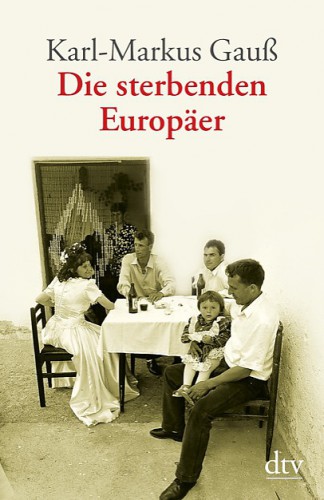 Dans l’ABC politique qui nous est cher, déplorer avec anxiété la disparition des faits communautaires, des communautés humaines réelles, de chair et de sang, est une constante, couplée à une anthropologie pessimiste qui ne voit pas de “progrès” dans leur disparition mais qui constate, amèrement, que ce que l’on baptise “progrès” est en réalité une terrible “régression” dans la diversité humaine. Bon nombre d’ethnologues, d’écologistes, d’anthropologues déplorent, à très juste titre, la disparition de langues et de petites communautés ethniques dans la jungle d’Amazonie ou dans les coins les plus reculés de Bornéo ou de la Nouvelle-Guinée. Mais ce triste phénomène se passe en Europe aussi, sous l’oeil indifférent de toutes les canailles qui donnent le ton, qui détiennent les clefs du pouvoir politique et économique, qui n’ont aucune empathie pour les éléments humains constitutifs d’une réalité charnelle irremplaçable si elle venait à disparaître. Pour se rappeler que le phénomène de la “mort ethnique” n’est pas seulement d’Amazonie ou d’Insulinde, il suffit de mentionner la disparition des Kachoubes, des Polaques de l’Eau ou des derniers locuteurs de la vieille langue prussienne (du groupe des langues baltiques), suite à la seconde guerre mondiale.
Dans l’ABC politique qui nous est cher, déplorer avec anxiété la disparition des faits communautaires, des communautés humaines réelles, de chair et de sang, est une constante, couplée à une anthropologie pessimiste qui ne voit pas de “progrès” dans leur disparition mais qui constate, amèrement, que ce que l’on baptise “progrès” est en réalité une terrible “régression” dans la diversité humaine. Bon nombre d’ethnologues, d’écologistes, d’anthropologues déplorent, à très juste titre, la disparition de langues et de petites communautés ethniques dans la jungle d’Amazonie ou dans les coins les plus reculés de Bornéo ou de la Nouvelle-Guinée. Mais ce triste phénomène se passe en Europe aussi, sous l’oeil indifférent de toutes les canailles qui donnent le ton, qui détiennent les clefs du pouvoir politique et économique, qui n’ont aucune empathie pour les éléments humains constitutifs d’une réalité charnelle irremplaçable si elle venait à disparaître. Pour se rappeler que le phénomène de la “mort ethnique” n’est pas seulement d’Amazonie ou d’Insulinde, il suffit de mentionner la disparition des Kachoubes, des Polaques de l’Eau ou des derniers locuteurs de la vieille langue prussienne (du groupe des langues baltiques), suite à la seconde guerre mondiale.
Karl-Markus Gauss, né en 1954 à Salzbourg, est aujourd’hui le directeur de la revue “Literatur und Kritik”. Ses livres sont traduits en de nombreuses langues et obtiennent souvent des prix très prestigieux. “Die sterbenden Europäer” part d’un axiome philosophique fondamental: l’Europe doit sa dimension plurielle, sa qualité culturelle intrinsèque, à l’existence de ces communautés battues en brèche, laminées sous les effets délétères de la pan-médiatisation —qui, comme l’avait prévu Heidegger, allait induire les hommes à oublier ce qu’ils sont vraiment, à ne plus river leurs regards sur les chemins de leur lieu natal— du “tout-économique”, des idéologies réductrices et universalistes, et, enfin, des avatars du jacobinisme étatique et éradicateur qui ne cesse de sévir.
La communauté sépharade de Sarajevo
Gauss commence par évoquer la communauté sépharade de Sarajevo, issue de la diaspora venue de l’ancienne Espagne musulmane, après la chute de Grenade en 1492 et les autres expulsions qui se sont succédé jusqu’aux premières années du 17ème siècle. La langue espagnole, castillane, s’est perpétuée à Sarajevo jusqu’en 1878, où une autre communauté juive, celle des Achkenazim germanophones, va donner le ton et administrer la Bosnie auparavant ottomane. Les Sépharades de Sarajevo tombaient de haut, en voyant arriver de drôles de coreligionnaires non hispanophones, et n’ont guère montré d’enthousiasme quand il s’est agi, pour eux, de céder la place à ces nouveaux venus qu’ils ne considéraient pas vraiment comme étant des leurs. La guerre de Bosnie commence le 5 avril 1992 précisément par le coup de feu d’un “sniper” embusqué dans le vieux cimetière juif de la ville, aux innombrables tombes portant des poèmes en “spaniole” et aux quelques tombes achkenazes, évoquant des noms hongrois, autrichiens ou bohémiens. Plus tard, l’artillerie des assiégeants s’y arcboutera pour pilonner la ville. Pour empêcher tout assaut contre les pièces, le cimetière a été miné. Il a fallu six mois à une association norvégienne pour enlever les mines. La guerre de Bosnie, et la guerre de 1999 contre la Serbie, qui s’ensuivit, ont donc éradiqué une communauté ancienne, détentrice d’une certaine mémoire d’Espagne transplantée en terres balkaniques. Des 1500 juifs de Sarajevo, 750, les plus jeunes, ont quitté définitivement la ville. Un témoin issu de cette communauté judéo-spaniole, officier instructeur de l’aviation militaire yougoslave, ingénieur et concepteur de drônes avant la lettre, témoigne du départ de tous les jeunes et dit de lui: “Je ne suis pas Israélien, pourquoi donc irais-je en Israël? Je ne suis pas Américain, pourquoi irais-je maintenant en Amérique ... pour y mourir?”.
Gauss tire la conclusion: toutes les factions belligérantes s’étaient mises d’accord pour évacuer les Juifs de Sarajevo sous la protection de l’ONU. Ce ne fut donc pas une nouvelle forme d’antisémitisme mais bien un mode nouveau de “philosémitisme” qui porta la responsabilité de cette éradication ethno-communautaire. Le témoin, Moshe Albahari, est clair: il n’y avait pas d’antisémitisme en Yougoslavie ni au sein des factions qui s’entretuaient dans la guerre inter-yougoslave des années 90. Toutes ses factions entendaient protéger la communauté sépharade: elles se haïssaient tellement, qu’il n’y avait plus de place pour d’autres haines en leurs coeurs, précise Albahari. Mais la Bosnie indépendante et divisée, née des conflagrations inter-yougoslaves, est une “entité à drapeaux”, des drapeaux particularistes, à laquelle Albahari, sépharade, ottoman et yougoslavo-titiste, ne peut s’intéresser. Question: ces “drapeaux particularistes” n’ont-ils pas été, paradoxalement, voulu par les théoriciens de l’universalisme pour installer à terme —car tel était le but véritable de la manoeuvre— l’armée américaine dans les Balkans, plus précisément au Kosovo, autre entité étatique nouvelle à idéologie “particulariste” (islamo-albanaise)? Par voie de conséquence, ces idéologies universalistes, tant prisées par les intellocrates et les médiacrates de la place de Paris, y compris les intellocrates sionistes ou judéophiles, ne sont-elles pas les premières responsables, avec leurs commanditaires de Washington, de la disparition de la vieille communauté sépharade de Sarajevo, en dépit du fait que ces intellocrates chantaient les louanges du modèle unificateur et polyethnique de la ville? Une ville qui deviendra essentiellement musulmane, non pas selon un islam ottoman (et tolérant), au sens ancien du terme, mais, comme le souligne Gauss (p. 42), sur un mode néo-islamiste, djihadiste, financé par les Wahhabites saoudiens qui n’ont pas la moindre affinité avec l’islam “spaniole” en exil. Nous touchons là à l’un des paradoxes les plus tragiques de la dernière décennie du 20ème siècle.
Les Allemands du Gottschee
Pendant 600 ans, une communauté allemande a défriché la forêt du “petit pays”, le Gottschee, 850 km2, et l’a transformé en terres arables et fertiles. Il n’a pas fallu cinquante ans pour que la forêt reprenne tous ses droits et que les villages, jadis florissants, soient devenus inaccessibles derrière un écran touffu d’arbres et de sous-bois. Le Gottschee n’est pourtant pas loin: il se trouve en Slovénie dans le district administratif de Kocevje, à une heure de route de la capitale Ljubljana (Laibach). Le village de Verdreng, comme beaucoup d’autres, a aujourd’hui disparu, à une ou deux maisons près, où vivent encore une poignée d’Allemands, vestiges humains d’un passé totalement révolu.
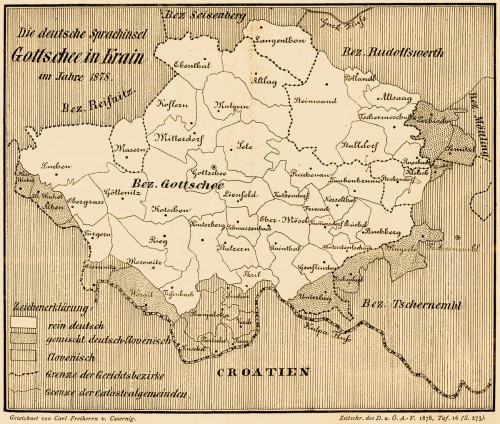
Leur communauté, réduite aujourd’hui au minimum du minimum, s’était constituée au 14ème siècle et, à force de défricher une forêt particulièrement dense, avait fini par bâtir 171 villages agricoles où la culture des céréales et des fruits ainsi que l’élevage du bétail étaient pratiqués. Ces paysans venaient de Carinthie ou du Tyrol oriental; il étaient surtout des cadets de famille, condamnés, en d’autres circonstances, à la domesticité ou au mercenariat: s’ils cultivaient leurs terres pendant neuf ans et un jour, elles leur appartenaient définitivement. Une aubaine dont tous voulaient profiter. Après la grande peste de 1348, qui décime la moitié de la population, le recrutement de nouveaux venus s’effectue en des régions germaniques plus lointaines: le reste du Tyrol, la Franconie et même la Thuringe. En 1492, l’Empereur Frédéric III leur accorde le privilège de devenir marchands itinérants dans la zone alpine, ce qu’ils sont restés jusqu’au lendemain de la seconde guerre mondiale, participant ainsi au désenclavement de leur communauté et en lui apprenant les choses du vaste monde, en modernisant leur allemand médiéval. Leur manière de commercer est demeurée la même au cours de ces cinq siècles: elle était basée sur la seule force physique du colporteur, qui avait sur le dos un “kraxn”, dispositif de bois permettant de porter une charge, un peu comme celui des Franc-Comtois qui transportaient loin vers la Bourgogne, la Champagne ou le Lyonnais des pendules fabriquées à Morteau ou dans les villages du “Pays horloger”. Les natifs du pays de “Gottschee” partaient peut-être au loin mais ils restaient fidèles à leur site d’origine, au “là” de leur Dasein, pour parler comme le Souabe Heidegger.
Cette communauté de Gottschee, théoriquement libre, souffrira considérablement du pouvoir des familles qui prendront misérablement le relais des Ortenburg, qui les avaient fait venir en Slovénie, dans l’arrière pays du diocèse d’Apulée, et leur avaient accordé le droit de devenir pleinement libres au bout de quelques années de labeur à peine. Pire: quand les armées ottomanes ravageaient la région, elles pillaient les réserves et emmenaient les paysans allemands en esclavage pour les faire trimer en Anatolie et les y dissoudre dans une population hétéroclite et bigarrée qui n’avait qu’un seul dénominateur commun: l’esclavage. En 1640, les Comtes d’Auersperg héritent du pays et décident de le développer: l’âge d’or du pays de Gottschee vient alors de commencer pour se terminer au lendemain de la Grande Guerre. Au 18ème siècle, les idées éclairées de l’Impératrice Marie-Thérèse et de l’Empereur Joseph II contribuent au développement de ces Allemands de souche exclavés, vivant de leur agriculture traditionnelle et autarcique et de leur commerce réduit à l’aire alpine et véhiculé à dos d’homme. Au 19ème siècle, cette communauté isolée envoie tant de ses enfants en Amérique qu’il y aura plus de “Gottscheer” au-delà de l’Atlantique en 1920 que dans le pays lui-même. Le premier Etat yougoslave commence une politique de “slovénisation” et de “dégermanisation” forcée, tant et si bien que lorsque les autorités nationales-socialistes rassemblent la population pour la déplacer à l’intérieur des frontières du Reich, les jeunes gens du pays ne parlent quasiment plus l’allemand: leur langue natale est si mâtinée de slovène que leurs voisins autrichiens ne les comprennent plus.
Pendant l’hiver 1941/1942, Hitler —qui, ici, ne se fait pas le défenseur des communautés allemandes excentrées— donne en effet l’ordre de déplacer la population locale allemande (13.000 habitants) pour offrir le terrain aux Italiens, en passe d’annexer cette partie de la Slovénie; simultanément, les partisans communistes slovènes s’emparent de la région et commencent l’épuration ethnique contre le millier de germanophones qui avaient décidé de rester, en dépit des ordres de Berlin. Quand les Italiens s’emparent d’un village tenu par les partisans, ils le rasent. Quand les partisans chassent les Italiens, ils font sauter toutes les maisons, désormais vides. On estime à 650 le nombre de “Gottscheer Deutsche” qui demeureront en Slovénie au lendemain de la seconde guerre mondiale. Tous contacts avec les “Gottscheer Deutsche” émigrés (de force) vers l’Allemagne ou l’Autriche sera formellement interdit par les autorités titistes jusqu’en 1972.
Ni les Allemands ni les Italiens ni les Slovènes ne tireront bénéfice de ces confrontations fratricides entre Européens: 80% de la région sont redevenus forêt. Cette régression est due aussi, explique Gauss (p. 58), à l’idéologie communiste: aucune famille paysanne, d’aucune nationalité que ce soit, n’était prête à se retrousser les manches pour redonner vie au pays, s’il fallait bosser selon les directives d’apparatchiks ignorants. Pire, le gouvernement titiste-communiste ordonne que la moitié de la région, désormais désertée, devienne une zone militaire, d’où les derniers Slovènes sont à leur tour expulsés en 1950. La “vox populi” chuchote que la nomenklatura avait décrété la militarisation de cette micro-région, non pas pour des motifs de défense nationale, mais pour qu’elle soit une réserve de chasse et de pêche exclusive, au bénéfice des apparatchiks, ou une zone de ramassage des meilleurs champignons, fins des fins de la gastronomie slovène et carinthienne.
L’ère titiste est désormais définitivement close. Le projet du nouvel Etat slovène et des financiers eurocratiques est de transformer la micro-région, auparavant germanophone, en une zone vouée au tourisme écologique, aux citadins randonneurs et aisés, aux chasseurs d’ours, aux amateurs de kayak sur petites rivières à débit rapide. La région ne retrouvera donc pas son charme d’antan. Après l’effondrement de la Yougoslavie dans les années 90 du 20ème siècle, la Slovénie post-communiste organise un sondage qui demande aux habitants du nouvel Etat à quelle nationalité ils s’identifient: 191 Slovènes se déclareront de nationalité autrichienne, 546 de nationalité allemande et 1543 se définiront comme “germanophones”. Ces quelques deux mille Slovènes germanophones ne sont toutefois pas tous des “Gottscheer Deutsche”, car la Slovénie abritait d’autres minorités allemandes. La répartition des “nationalités” effectives —que l’on distinguera du ridicule concept franco-jacobin de “citoyenneté” (où le citoyen est alors un être totalement désincarné et sans substance, un être fantômatique et zombifié, que tous peuvent devenir par simple déclaration, fussent-ils originaires des antipodes)— est extrêmement complexe dans la région, explique Gauss: Maribor/Marburg, aujourd’hui en Slovénie, comptait 80% d’habitants germanophones en 1910, alors que Klagenfurt/Celovec, aujourd’hui ville autrichienne de Carinthie, comptait bien plus que 20% de slovénophones à la même époque. En 1991, année du sondage slovène sur les nationalités effectives du pays, deux associations regroupant les germanophones de la micro-région de Gottschee se créent pour encadrer vaille que vaille le reste bien chiche d’une population qui avait compté environ 70.000 Allemands. Pourtant, la modestie de cette communauté germanophone résiduaire a fait paniquer les Slovènes qui entrevoyaient tout à coup le retour offensif des Autrichiens et des Allemands, après le départ des Fédéraux yougoslaves et des Serbes. Entretemps, 60.000 citoyens des Etats-Unis se déclarent originaires du “Ländchen” de Gottschee, plus qu’il n’en vivait là-bas, en Slovénie, à l’âge d’or de cette communauté.
Les Arbëreshe de Calabre
Nous sommes à 250 km de Naples dans le village de Civita, 1200 habitants, pour la plupart de souche albanaise. On les appelle les “Arbëreshe” parce qu’ils ont quitté la région d’Arbënor dans le sud de l’Albanie, il y a 500 ans. Le village semble peuplé de vieux hommes, revenus au pays après avoir bossé partout dans le monde, où leur descendance est dispersée. La Calabre compte une trentaine de villages albanophones, dont les habitants sont allés travailler en Italie du Nord, en Allemagne, en Suisse, en Belgique ou en Scandinavie. Au soir de leur vie, ils reviennent au pays de leurs ancêtres. Ceux-ci sont arrivés en Italie du Sud en 1468, par bateaux entiers, l’année où leur héros national, Gjergj Kastriota, alias Skanderbeg, meurt au combat, invaincu, face aux armées ottomanes. Les réfugiés qui arrivent au 15ème siècle en Italie sont ceux qui refusent l’ottomanisation et l’islamisation. Ils repeupleront les villages de Calabre, ravagés par la peste, la guerre, les séismes. Leur religion est marquée par les formes byzantines que l’Eglise catholique italienne accepte bon gré mal gré d’abord, sans réticence ensuite: même un Paul VI, qui a voulu balancer aux orties toutes les formes traditionnelles, finit par accepter les dérogations cultuelles accordées aux catholiques albanais de rites byzantins. Les prêtres catholiques des “Arbëreshe” sont mariés (mais non leurs évêques); ils donnent du pain et non des hosties à la communion; seule différence: ils reconnaissent tout simplement l’autorité du Pape romain, qui protègeait jadis leur nouvelle patrie contre toute offensive ottomane.
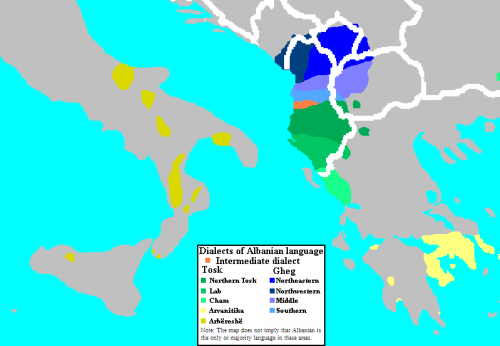
Le Roi espagnol des Deux-Siciles leur accorde des privilèges en Sicile, en Calabre, en Apulie et dans le Basilicat où leur mission est de refertiliser des terres laissées en friche. Sept vagues successives, en deux cents ans, amèneront un demi million d’Albanais en Italie. Ils sont venus en même temps que des Grecs, qui, eux aussi, ont gardé leurs rites orthodoxes, de “Schiavoni” slaves et d’“Epiroti” (d’Epire). L’ancien royaume des Deux-Siciles était certes majoritairement italien mais il comptait aussi de fortes minorités italo-albanaises et italo-grecques, parfaitement intégrées tout en demeurant fidèles à leurs racines et à leur langue. Dans les troupes de Garibaldi, de nombreux Italo-Albanais ont combattu vaillament, au point que le nouvel Etat leur a d’emblée autorisé à créer des écoles où l’on enseignait les deux langues, l’italien et l’albanais. Les Arbëreshe sont donc des “doubles patriotes”, écrit Gauss (p. 106): ils sont albanais par la langue, qu’ils refusent d’oublier, et italiens par patriotisme envers la terre qui les a accueillis jadis. Dans les armées de Garibaldi et dans celles de Mussolini, les Albanais de l’ex-royaume des Deux-Siciles ont répondu “présents”!
Gauss a rencontré un certain Emanuele Pisarra qui lui a déclaré: “Nous ne sommes pas les meilleurs des Albanais, nous sommes les vrais Albanais!” Pourquoi? Parce que le stalinisme d’un Enver Hoxha a malheureusement transformé les fiers “Shkipetars” d’Albanie en égoïstes indignes, oublieux de leurs véritables traditions, uniquement soucieux de posséder une belle auto et une télévision, quitte à s’affilier à un réseau mafieux. Le stalinisme, pour Pisarra, avait pris le relais d’un islam ottoman, déjà annihilateur de véritable “albanitude”, de fierté nationale et d’esprit de liberté. En 1991, quand l’Albanie se dégage de la cangue communiste et que des bateaux bourrés de réfugiés abordent les côtes italiennes, Pisarra fut un des premiers à tendre la main à ces compatriotes d’au-delà de l’Adriatique, à proposer des cours, à chercher à favoriser leur intégration: il a vite déchanté. Les réfugiés islamisés et stalinisés ne veulent recevoir aucune formation, n’ont aucune empathie pour l’histoire de leurs frères albanais d’Italie méridionale. Ils veulent devenir vite riches dans le paradis capitaliste. Pire, déplore Pisarra, ils ne parlent plus la belle langue albanaise que les Arbëreshe ont cultivée pendant cinq siècles en dehors du pays d’origine: la langue s’est appauvrie et abâtardie. “Ils ont désormais une autre religion, une autre langue, d’autres valeurs, ils sont différents”, déplore Pisarra. Ils ne partagent pas la vraie culture albanaise. A l’exception, sans doute, des “Arvénites” albanophones de Grèce, qui n’avaient pas traversé la mer au 15ème siècle mais s’étaient dirigés vers le Sud grec-orthodoxe. Les “Arvénites” orthodoxes de Grèce, tout comme les “Arbëreshe” catholiques d’Italie, sont atterrés par le comportement matérialiste de ceux qui quittent l’Albanie ex-communiste ou le Kosovo pro-atlantiste pour venir embrasser de façon si obscène la “civilisation du Coca-Cola et du frigidaire de Tokyo à San Francisco”.
La culture albanaise (la vraie!) connaît cependant une réelle renaissance en Italie depuis quelques années. D’abord parce que l’Italie accepte ses propres minorités et promeut le bilinguisme partout où il s’avère de mise. Pour Gauss, le bilinguisme des minorités constitue, au sein de la nouvelle culture italienne, une sorte d’avant-garde capable d’être pleinement et naturellement “diversifiée” et “diversificatrice”, au sens de ce pluralisme ethnique non politisé qui a toujours fait le charme de l’Europe, avec des minorités qui passent avec une aisance stupéfiante d’une langue à l’autre dans les conversations de tous les jours. Le train de lois votées en Italie en 1999 reconnaît aux Albanais le statut de minorité, le droit d’enseigner la langue dans les écoles et d’être servis en “Arbëreshe” dans les services publics. Le temps des jacobinismes est bel et bien terminé en Italie. Un exemple pour d’autres!
Les Sorabes d’Allemagne
La région s’appelle la Lusace. Elle est longue d’une centaine de kilomètres, à cheval sur les “Länder” du Brandebourg et de la Saxe, à proximité des frontières polonaise et tchèque. Elle englobe les villes de Cottbus, Hoyerswerda et Bautzen, et de nombreux villages pittoresques. Elle est peuplée d’une ethnie slavophone: les Sorabes, dont le parler est proche du tchèque voire du polonais. Les Sorabes résiduaires, les plus ancrés dans leurs traditions, sont catholiques dans un environnement germano-sorabe majoritairement protestant; ils sont fidèle au culte marial, notamment lors des pèlerinages de Rosenthal. Tous les Sorabes portent deux noms: un nom allemand (pour l’état civil), un nom slave (pour la vie quotidienne). Exemples: Lenka Rjelcec est Elisabeth Rönschke, Jan Mlynk est Hans Müller. C’est comme ça. Depuis quelques siècles. Et personne ne s’en formalise.
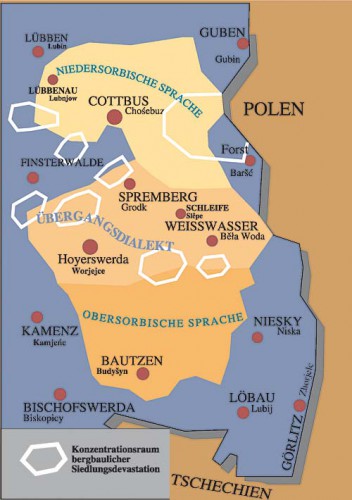 En 805, les armées de Charlemagne s’ébranlent pour convertir les païens saxons et slaves (les “Wenden”), les inclure dans l’Empire franc afin qu’ils paient tribut. Seuls les Sorabes résistent et tiennent bon: de Magdebourg à Ratisbonne (Regensburg), l’Empereur est contraint d’élever le “limes sorbicus”. Assez rapidement toutefois, la tribu est absorbée par le puissant voisin et connaît des fortunes diverses pendant 1200 ans, sans perdre son identité, en dépit des progressistes libéraux du “Kulturkampf”, qui entendaient éradiquer la “culture réactionnaire” et des nationaux-socialistes qui suppriment en 1937 tout enseignement en sorabe et envisagent le déplacement à l’Est, en territoires exclusivement slaves, de cette “population wende résiduaire” (“Reste des Wendentums”).
En 805, les armées de Charlemagne s’ébranlent pour convertir les païens saxons et slaves (les “Wenden”), les inclure dans l’Empire franc afin qu’ils paient tribut. Seuls les Sorabes résistent et tiennent bon: de Magdebourg à Ratisbonne (Regensburg), l’Empereur est contraint d’élever le “limes sorbicus”. Assez rapidement toutefois, la tribu est absorbée par le puissant voisin et connaît des fortunes diverses pendant 1200 ans, sans perdre son identité, en dépit des progressistes libéraux du “Kulturkampf”, qui entendaient éradiquer la “culture réactionnaire” et des nationaux-socialistes qui suppriment en 1937 tout enseignement en sorabe et envisagent le déplacement à l’Est, en territoires exclusivement slaves, de cette “population wende résiduaire” (“Reste des Wendentums”).
Gauss constate que les éléments sont nombreux qui ont permis à cette identité sorabe de subsister: la langue, bien sûr, mais aussi les coutumes, les pèlerinages et les processions (équestres, mariales et pascales), les costumes traditionnels. Le plus spectaculaire de ces éléments demeure indubitablement la procession équestre de Pâques, à laquelle des milliers de Sorabes prennent part. La RDA communiste, slavophile par inféodation à Moscou, au Comecon et au Pacte de Varsovie, n’a pas interdit ce folklore et cette “chevauchée pascale” (“Osterritt”), au nom du matérialisme dialectique et de l’athéisme officiel, mais les chevaux disponibles s’étaient considérablement raréfiés, vu la collectivisation du monde agricole. Peu de Sorabes possédaient encore un cheval personnel. Des coutumes païennes immémoriales ont survécu en Haute-Lusace, comme celle du “mariage des oiseaux” (“Vogelhochzeit”), où l’on sacrifie des animaux aux ancêtres avant de les consommmer collectivement, ou celle de la “décapitation des coqs” (“Hahnrupfen”), où les garçons doivent décapiter un gallinacé avant de pouvoir danser avec l’élue de leur coeur sur la place du village. Comme dans les Alpes et à Bruxelles, les Sorabes plantent aussi l’“Arbre de Mai”. Ce folklore, marque indélébile de la “culture réactionnaire” des “Wendes résiduaires”, attire cependant de plus en plus d’Allemands, lassés des religions officielles anémiées et “modernisées”. Tous, même s’ils n’allaient plus à l’église ou au temple, y redécouvrent la vraie religion populaire. La messe ou l’office dominical(e) n’épuise pas la religion: celle-ci vit bien davantage dans les pèlerinages ou les processions, expression de la religion vraie et fondamentale, en dépit du vernis chrétien.
Les Sorabes ont donc résisté au progressisme du 19ème siècle, au national-socialisme et à sa politique de germanisation totale, au communisme de la RDA. La Lusace est le pays de la lignite, matière première nécessaire à la construction de “la première république allemande des ouvriers et des paysans”. L’industrialisation forcée, tablant en partie sur l’exploitation de ces gisements de lignite, devait englober tout le pays, jusqu’à ses coins les plus reculés. La collectivisation communiste de la Haute-Lusace s’accompagne de drames, d’une vague de suicides sans précédent. Les propriétaires de petites fermes modestes, transmises de père en fils depuis des siècles, se pendent quand les milices communistes viennent saisir leurs patrimoines immobiliers pour les inclure dans le système néo-kolkhozien. Ou quand les camions viennent chercher leurs avoirs pour transplanter leurs familles dans les clapiers des nouvelles banlieues: le parti a veillé à tout, ils ont désormais un centre culturel, une salle de sport et des jardins d’enfants. Mais, ils n’ont plus de terroir, de glèbe. La RDA a certes donné l’autonomie culturelle à ses citoyens sorabes mais l’exode forcé hors des villages vers les clapiers d’Hoyerswerda a contribué à les germaniser avec plus d’efficacité que la politique répressive des nationaux-socialistes. Quant à la RFA, après la réunification, elle a reproché aux Sorabes germanisés par les communistes de s’être insurgés contre le parcage dans leurs villes de vrais ou faux réfugiés politiques venus d’on ne sait où, pour bénéficier des avantages du système social allemand. Ces cibles du national-socialisme, soucieux de se débarrasser enfin des “résidus du ‘Wendentum’”, sont du coup devenus de la graine de néo-nazis, que l’on fustigeait à qui mieux mieux avec le zèle hystérique de la prêtraille médiatique!
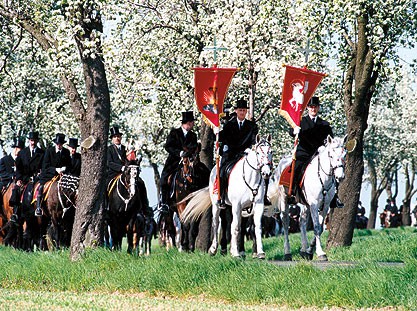
Résultat: s’il y avait 200.000 Sorabes recensés au 15ème siècle, et 300 villages bas-sorabes au 18ème, il n’y a plus aujourd’hui que quelques communes sorabes autour de Cottbus; elles sont principalement catholiques, les protestants, majoritaires et moins enclins à pratiquer les rituels ruraux qui donnent aux traditions sorabes tout leur lustre, ayant été rapidement germanisés par les pasteurs, qui, souvent, n’acceptaient que des enfants germanophones pour les préparer à la confirmation.
Les Aroumains de Macédoine
Les Aroumains sont une ethnie sans terres compactes, dispersée dans une quantité impressionnnante d’isolats semi-urbains ou ruraux ou dans les grandes villes des Balkans méridionaux, essentiellement dans l’actuelle République post-yougoslave de Macédoine. Au départ, ces locuteurs d’une langue romane proche du roumain avaient pour fonction, dans le Sud de la péninsule balkanique, d’escorter les caravanes qui pèrégrinaient entre Venise et Byzance. On évalue leur nombre à un demi-million d’âmes. Seule la Macédoine les reconnaît comme minorité. Au moyen âge, ce peuple de marchands et d’intermédiaires était réputé, hautement apprécié: on le connaissait en Europe du Nord, où ses ressortissants venaient acheter des marchandises, et son centre névralgique était Moschopolis, une ville aujourd’hui en ruine, totalement abandonnée, située en Albanie. Ce peuple porte aussi d’autres noms: le terme français “aroumain” dérive en droite ligne de l’appelation qu’ils se donnent eux-mêmes, les “armâni”; les Albanais les nomment “Remeri”, les Grecs, les “Vlaques”, les Serbes, les “Vlassi”. D’autres noms circulent pour les désigner, comme les Çobanë, la Macedoneni, les Kutzowlachen ou les “Zinzars” (Tsintsars). Les communautés aroumaines ne vivent pas en vase clos, rappelle Gauss, car ils ont participé à tous les mouvements d’émancipation nationaux-populaires dans les Balkans, depuis les temps héroïques de la révolte grecque chantée par Lord Byron, qui rencontrera d’ailleurs bon nombre de “philhellènes” qui étaient en réalité des Vlaques aroumains. Ne désirant pas perdre tout crédit au sein de cette population jugée intéressante, le Sultan turc Abdoul Hamid reconnaît leur nationalité dans un firman de 1905. Cependant, la phase finale des guerres de libération balkaniques s’achève en 1913, quand la Sublime Porte doit abandonner toutes ses possessions européennes, sauf la Thrace entre Andrinople/Edirne et Istanbul. Du coup, les Aroumains sont répartis sur quatre Etats nouveaux qui veulent absolument faire coïncider ethnicité et citoyenneté, ce qui n’est possible que par un alignement inconditionnel et assimilateur sur l’ethnie majoritaire. Les Bulgares et surtout les Grecs seront les plus sévères à l’égard des Aroumains: ces locuteurs d’un parler roman qui sont orthodoxes comme les Roumains auront été finalement mieux reconnus par les Ottomans d’Abdoul Hamid que par leurs frères orthodoxes, aux côtés desquels ils avaient combattu les Turcs!
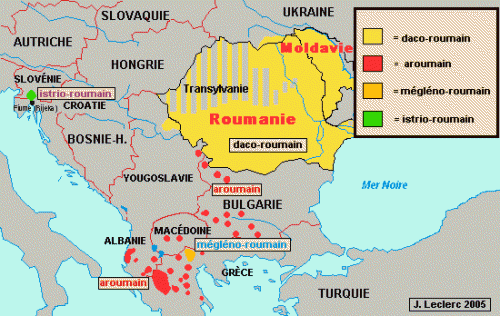
Leurs revendications actuelles, finalement fort modestes, correspondent tout simplement à ce qu’Abdoul Hamid était prêt à leur accorder le 20 mai 1905: cette date du 20 mai est devenue celle de la fête nationale de tous les Aroumains. La déréliction que vivent les Aroumains, sauf en Macédoine, a fait naître auprès de leurs conteurs une mythologie nationale grandiose: ils seraient les descendants directs des Pélasges préhelléniques et Alexandre le Grand aurait été un des leurs. De ce fait la langue “macédono-aroumaine” n’est pas une forme de néo-latin, née après la romanisation d’une partie des Balkans et surtout de la Dacie: elle est bel et bien la langue originelle de la région, à peine mâtinée de latin d’Italie.
Sur le plan politique, les Aroumains regrettent l’ère titiste en Yougoslavie, car le régime les avait autorisés à avoir des associations culturelles propres. Ils reprochent toutefois à Tito d’avoir été un communiste car cette idéologie ne leur permettait plus d’exercer leur fonction traditionnelle de négoce. Aujourd’hui, ils se félicitent des dispositions bienveillantes que leur accordent les autorités macédoniennes mais se méfient de l’albanisation croissante de cette république ex-yougoslave car en Albanie, où les Aroumains sont la minorité la plus importante, ils ne sont nullement reconnus. Au Kosovo, nouvel Etat né par la grâce de l’idéologie américaine et “droit-de-l’hommarde”, les Aroumains sont persécutés par les bandes de l’UÇK, au même titre que les Serbes ou les Roms. En Macédoine, ils peuvent à nouveau “aroumainiser” leurs patronymes. Le peintre aroumain Martin s’est en effet appelé Martinovic en Serbie et Martinov en Bulgarie, avant de devenir Martinovski en Macédoine. Les Aroumains ont certes été respectés pour leur savoir-faire et pour leur niveau culturel élevé mais, dans les Etats ethno-nationaux des Balkans, ils ont toujours été considérés comme “suspects”: les Albanais les prennent pour des “Grecs déguisés” cherchant à arracher le Sud de l’Albanie pour la livrer aux Hellènes. Les Grecs, eux, les considérent comme un reliquat pré-hellénique au niveau de civilisation fort bas ou comme des “agents macédoniens”. Les Bulgares les accusent d’être des “Macédoniens yougoslavistes” refusant de participer à la création d’un “saint royaume bulgaro-macédonien” englobant une bonne part de l’actuelle République de Macédoine. Dans le contexte européen actuel, ces suspicions ne sont évidemment plus de mise.
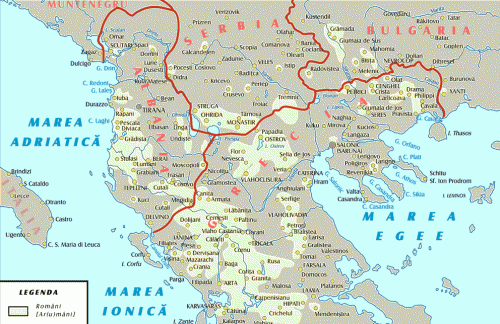
En Grèce, la plupart des Aroumains/Vlaques vivent dans un isolat de la région des Monts Pindos mais sont soumis à une politique d’assimilation forcenée: le terme qui les désigne, “Vlaque”, est devenu synonyme, en grec, de “primitif”, d’”homme des bois”, d’”inculte”, d’”idiot”. Cette propagande négative incessante fait que bon nombre de Vlaques, aussi pour éviter la déportation vers d’autres régions ou vers des îles arides de l’Egée, abandonnent leur identité romane, ne la transmettent plus à leurs enfants, phénomène navrant que l’on a vu se produire ailleurs en Europe aussi, le jacobinisme français n’ayant pas fait de cadeaux aux Bretons celtophones, jugés “arriérés” comme Bécassine, le britannisme anglais ayant également traité les sujets irlandais de leurs rois et reines de “primitifs” et le système belge ayant considéré parfois sa majorité (!) flamande de la même manière, au nom d’on ne sait trop quelle “excellence”. L’ingénieur “grec” Vasile Barba, de souche aroumaine, lutte pour la survie de son peuple en Allemagne, où il anime un “Zentrum für aromunische Studien” à Fribourg-en-Brisgau. Il est une voix très écoutée et très respectée dans les communautés aroumaines éparses de Grèce, de Bulgarie et de Macédoine.
Le sort des minorités aroumaines nous permet de formuler quelques suggestions: 1) la mémoire balkanique ne peut se passer de la mémoire “aroumaine”, d’autant plus qu’elle est romane au beau milieu d’un monde slave, hellénique et illyrien-balkanique; cette spécificité doit donc être protégée; 2) on s’aperçoit que l’immixtion américaine au Kosovo a déjà fortement ébranlé le patrimoine serbe-orthodoxe, suite aux vandalisations des monastères et des bibliothèques par les milices atlanto-wahhabites stipendiées par Washington; le travail de Gauss nous apprend que les communautés aroumaines, parce qu’orthodoxes, subissent là-bas le même sort au nom de l’idéologie des droits de l’homme et du fondamentalisme saoudien. Il est temps, pour les esprits lucides, de dénoncer, au nom du droit concret des minorités et au nom de la défense du patrimoine mondial, cette collusion malsaine que les médias véreux camouflent soigneusement car il est bien entendu que l’Oncle Sam a, pour ces mercenaires, le droit inaliénable de s’allier avec n’importe qui, avec n’importe quel ramassis d’iconoclastes, pour pouvoir à terme disposer de sa grande base au beau milieu de la province serbe du Kosovo afin de contrôler étroitement l’espace pontique, la péninsule balkanique, l’Anatolie et le bassin oriental de la Méditerranée (avec le Canal de Suez).
Robert Steuckers.
(février 2014).



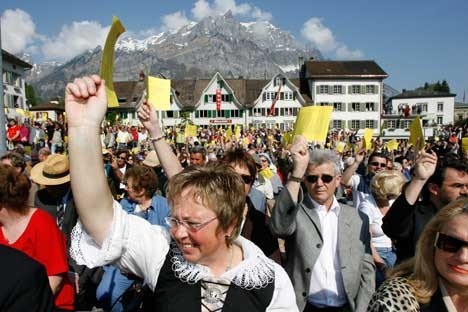

 del.icio.us
del.icio.us
 Digg
Digg
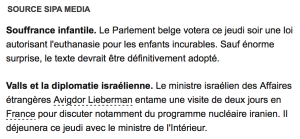

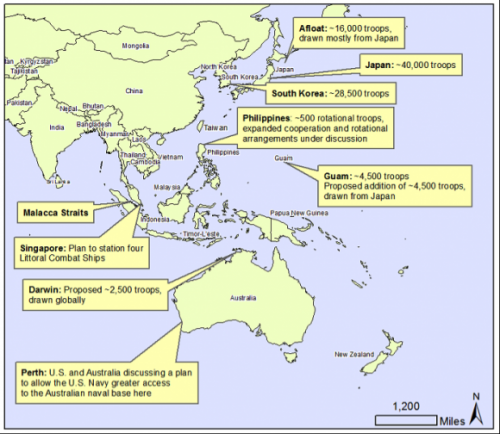

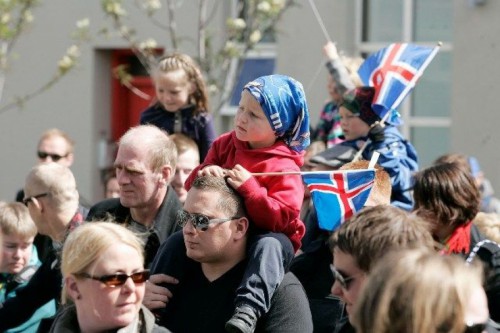
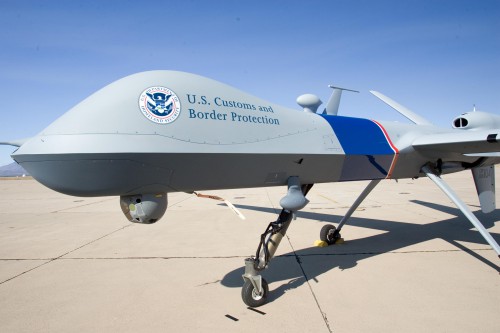
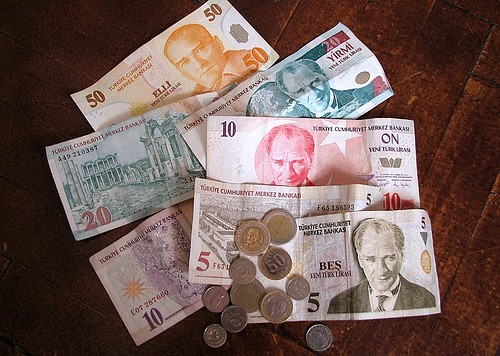
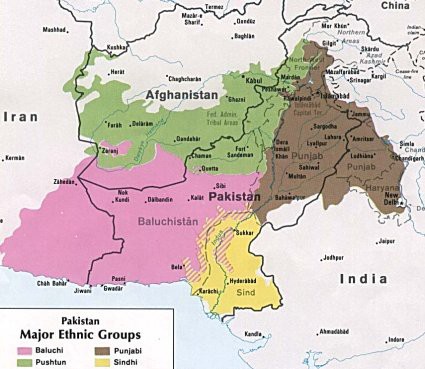

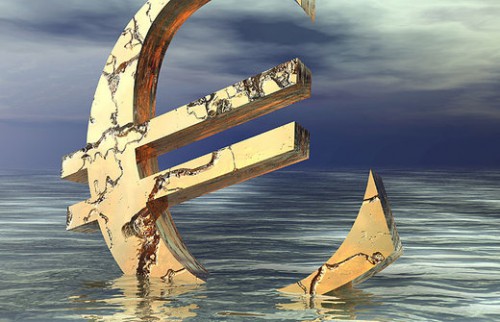
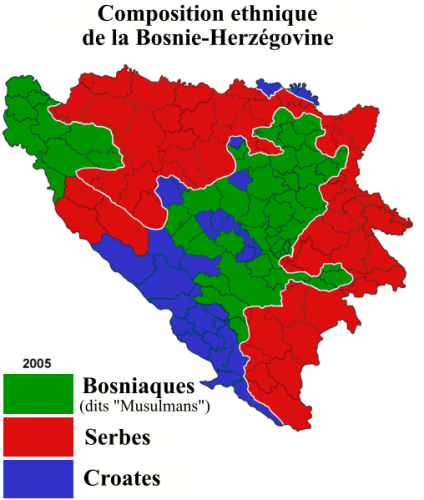
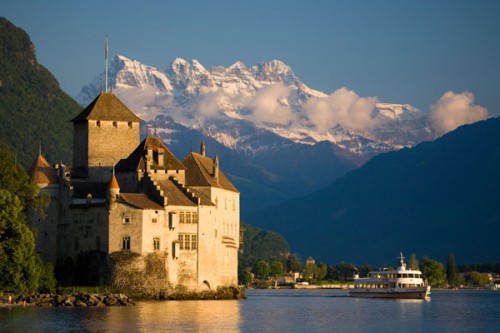
 Dans l’ABC politique qui nous est cher, déplorer avec anxiété la disparition des faits communautaires, des communautés humaines réelles, de chair et de sang, est une constante, couplée à une anthropologie pessimiste qui ne voit pas de “progrès” dans leur disparition mais qui constate, amèrement, que ce que l’on baptise “progrès” est en réalité une terrible “régression” dans la diversité humaine. Bon nombre d’ethnologues, d’écologistes, d’anthropologues déplorent, à très juste titre, la disparition de langues et de petites communautés ethniques dans la jungle d’Amazonie ou dans les coins les plus reculés de Bornéo ou de la Nouvelle-Guinée. Mais ce triste phénomène se passe en Europe aussi, sous l’oeil indifférent de toutes les canailles qui donnent le ton, qui détiennent les clefs du pouvoir politique et économique, qui n’ont aucune empathie pour les éléments humains constitutifs d’une réalité charnelle irremplaçable si elle venait à disparaître. Pour se rappeler que le phénomène de la “mort ethnique” n’est pas seulement d’Amazonie ou d’Insulinde, il suffit de mentionner la disparition des Kachoubes, des Polaques de l’Eau ou des derniers locuteurs de la vieille langue prussienne (du groupe des langues baltiques), suite à la seconde guerre mondiale.
Dans l’ABC politique qui nous est cher, déplorer avec anxiété la disparition des faits communautaires, des communautés humaines réelles, de chair et de sang, est une constante, couplée à une anthropologie pessimiste qui ne voit pas de “progrès” dans leur disparition mais qui constate, amèrement, que ce que l’on baptise “progrès” est en réalité une terrible “régression” dans la diversité humaine. Bon nombre d’ethnologues, d’écologistes, d’anthropologues déplorent, à très juste titre, la disparition de langues et de petites communautés ethniques dans la jungle d’Amazonie ou dans les coins les plus reculés de Bornéo ou de la Nouvelle-Guinée. Mais ce triste phénomène se passe en Europe aussi, sous l’oeil indifférent de toutes les canailles qui donnent le ton, qui détiennent les clefs du pouvoir politique et économique, qui n’ont aucune empathie pour les éléments humains constitutifs d’une réalité charnelle irremplaçable si elle venait à disparaître. Pour se rappeler que le phénomène de la “mort ethnique” n’est pas seulement d’Amazonie ou d’Insulinde, il suffit de mentionner la disparition des Kachoubes, des Polaques de l’Eau ou des derniers locuteurs de la vieille langue prussienne (du groupe des langues baltiques), suite à la seconde guerre mondiale. 

 En 805, les armées de Charlemagne s’ébranlent pour convertir les païens saxons et slaves (les “Wenden”), les inclure dans l’Empire franc afin qu’ils paient tribut. Seuls les Sorabes résistent et tiennent bon: de Magdebourg à Ratisbonne (Regensburg), l’Empereur est contraint d’élever le “limes sorbicus”. Assez rapidement toutefois, la tribu est absorbée par le puissant voisin et connaît des fortunes diverses pendant 1200 ans, sans perdre son identité, en dépit des progressistes libéraux du “Kulturkampf”, qui entendaient éradiquer la “culture réactionnaire” et des nationaux-socialistes qui suppriment en 1937 tout enseignement en sorabe et envisagent le déplacement à l’Est, en territoires exclusivement slaves, de cette “population wende résiduaire” (“Reste des Wendentums”).
En 805, les armées de Charlemagne s’ébranlent pour convertir les païens saxons et slaves (les “Wenden”), les inclure dans l’Empire franc afin qu’ils paient tribut. Seuls les Sorabes résistent et tiennent bon: de Magdebourg à Ratisbonne (Regensburg), l’Empereur est contraint d’élever le “limes sorbicus”. Assez rapidement toutefois, la tribu est absorbée par le puissant voisin et connaît des fortunes diverses pendant 1200 ans, sans perdre son identité, en dépit des progressistes libéraux du “Kulturkampf”, qui entendaient éradiquer la “culture réactionnaire” et des nationaux-socialistes qui suppriment en 1937 tout enseignement en sorabe et envisagent le déplacement à l’Est, en territoires exclusivement slaves, de cette “population wende résiduaire” (“Reste des Wendentums”). 


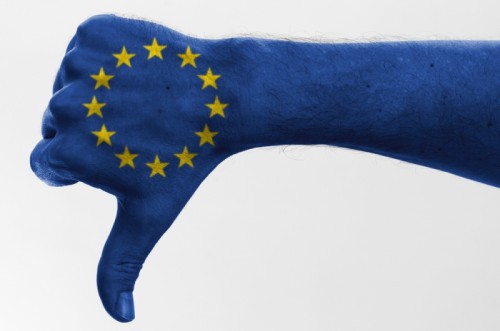
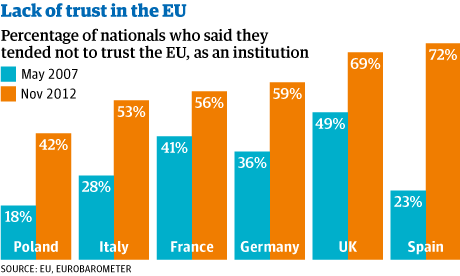
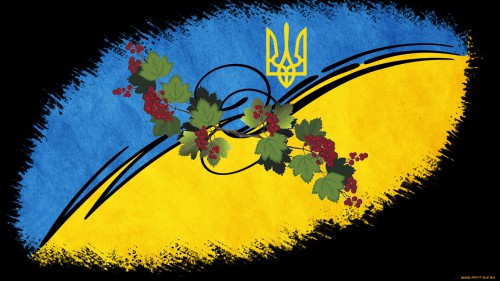
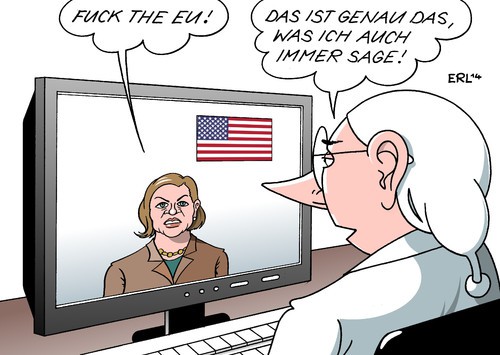
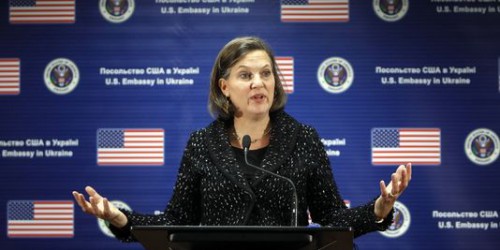
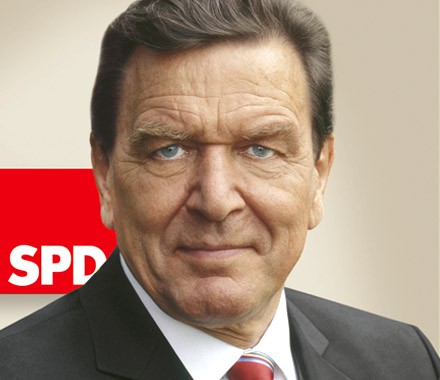
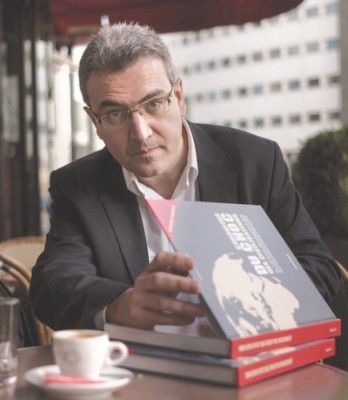 Il est toujours difficile de recenser un ouvrage qui l’a déjà été par nos soins. Aymeric Chauprade vient de publier la troisième édition, actualisée et augmentée, de sa Chronique du choc des civilisations. Intitulée « Civilisations en collisions » et mis en ligne sur le présent site le 9 octobre 2011, la précédente recension évoquait les qualités de cette deuxième édition qui valut l’éviction de son auteur de toutes les chaires universitaires à la suite d’une campagne de presse malveillante orchestrée par un de ces stipendiés par l’Oncle Sam.
Il est toujours difficile de recenser un ouvrage qui l’a déjà été par nos soins. Aymeric Chauprade vient de publier la troisième édition, actualisée et augmentée, de sa Chronique du choc des civilisations. Intitulée « Civilisations en collisions » et mis en ligne sur le présent site le 9 octobre 2011, la précédente recension évoquait les qualités de cette deuxième édition qui valut l’éviction de son auteur de toutes les chaires universitaires à la suite d’une campagne de presse malveillante orchestrée par un de ces stipendiés par l’Oncle Sam.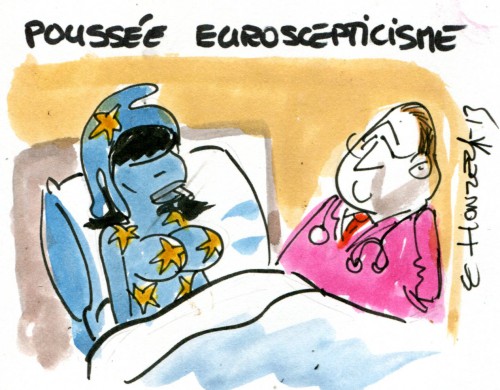
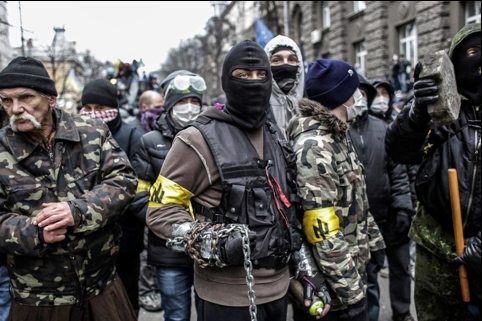
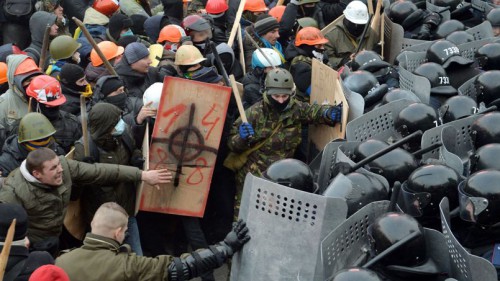
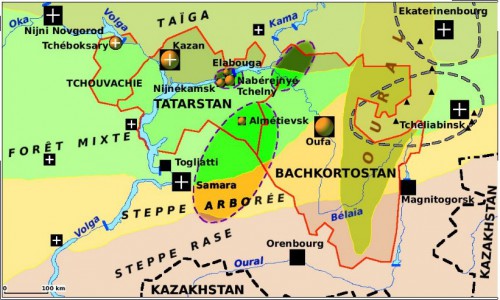
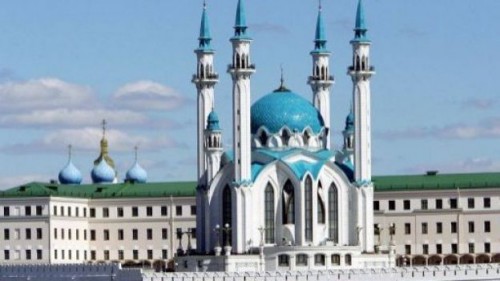 Le recensement de 2002
Le recensement de 2002 